| Listing 1 - 10 of 15 | << page >> |
Sort by
|
Book
Year: 1977 Publisher: Paris: Institut d'ethnologie,
Abstract | Keywords | Export | Availability | Bookmark
 Loading...
Loading...Choose an application
- Reference Manager
- EndNote
- RefWorks (Direct export to RefWorks)
Book
Year: 1977 Publisher: Paris : Institut d'ethnologie, Musée de l'homme,
Abstract | Keywords | Export | Availability | Bookmark
 Loading...
Loading...Choose an application
- Reference Manager
- EndNote
- RefWorks (Direct export to RefWorks)
Palawan (Philippine people). --- Kinship --- Palawan Island --- Social life and customs.
Book
Year: 1970 Publisher: Manila : [National Museum],
Abstract | Keywords | Export | Availability | Bookmark
 Loading...
Loading...Choose an application
- Reference Manager
- EndNote
- RefWorks (Direct export to RefWorks)
Prehistoric peoples --- Caves --- Palawan Island --- Antiquities
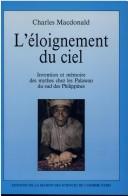
ISBN: 2735102521 Year: 1988 Publisher: Paris : Editions de la Maison des sciences de l'homme,
Abstract | Keywords | Export | Availability | Bookmark
 Loading...
Loading...Choose an application
- Reference Manager
- EndNote
- RefWorks (Direct export to RefWorks)
Palawan (Philippine people) --- Legends --- Palawan (Peuple des Philippines) --- Légendes --- Folklore --- Philippines --- Folklore --- Philippines
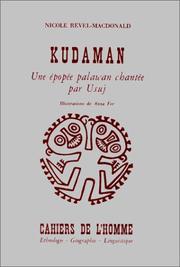
ISBN: 2713207975 Year: 1983 Volume: vol 23 Publisher: Paris Ecole des hautes études en sciences sociales
Abstract | Keywords | Export | Availability | Bookmark
 Loading...
Loading...Choose an application
- Reference Manager
- EndNote
- RefWorks (Direct export to RefWorks)
Palawano language --- -Palawan (Philippine people) --- -Folk songs, Palawano --- -Palawano folk songs --- Taut Batu (Philippine people) --- Ethnology --- Palawan language --- Palawanen language --- Southern Palawan language --- Palawanic languages --- Texts --- Social life and customs --- -Texts --- Folk songs, Palawano --- Palawan (Philippine people) --- Palawano folk songs

ISBN: 0824862643 0585238839 082482153X 0824822137 Year: 1999 Publisher: Honolulu : University of Hawai'i Press,
Abstract | Keywords | Export | Availability | Bookmark
 Loading...
Loading...Choose an application
- Reference Manager
- EndNote
- RefWorks (Direct export to RefWorks)
A Generation Later moves beyond analytical models of rural change that focus on the peasant/agricultural aspect of rural communities and makes a convincing case for an approach that integrates farm and nonfarm occupations and does justice to the conditions of occupational multiplicity that characterize, to an increasing extent, many of the rural communities in Asia. In this context, it challenges conventional (and simplistic) "peasant to proletarian" views of change. Rather than finding a dreary and dispirited landscape of sameness and hardship, it offers some empirical support for amore optimistic view of the region's future, one of growing household prosperity and widespread individual opportunity.
SOCIAL SCIENCE --- Anthropology / Cultural --- Rural industries --- Développement communautaire --- Industrie rurale --- Exploitations agricoles familiales --- Palawan (Philippines) --- Ménages (Statistique) --- Community development --- Family farms --- Households --- Développement communautaire --- Population --- Population. --- Palawan, Philippines (Province) --- Province of Palawan (Philippines) --- Lalawigan ng Palawan (Philippines)
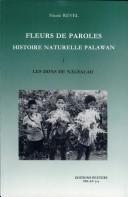
ISBN: 2877230228 Year: 1990 Publisher: Paris : Editions Peeters,
Abstract | Keywords | Export | Availability | Bookmark
 Loading...
Loading...Choose an application
- Reference Manager
- EndNote
- RefWorks (Direct export to RefWorks)
Palawan (Philippine people) --- Natural history --- Palawan (peuple des Philippines) --- Ethnozoologie --- Ethnobotanique --- Sciences naturelles --- Moeurs et coutumes --- Philippines
Book
ISBN: 9781407358420 1407358421 Year: 2024 Publisher: Oxford, UK : BAR Publishing,
Abstract | Keywords | Export | Availability | Bookmark
 Loading...
Loading...Choose an application
- Reference Manager
- EndNote
- RefWorks (Direct export to RefWorks)
Archaeology --- Archéologie communautaire --- Archéologie --- Community archaeology --- Excavations (Archaeology) --- Fouilles (Archéologie) --- Palawan (Philippines : Province) --- Palawan (Philippines) --- Palawan Island (Philippines) --- History. --- Histoire. --- Antiquities. --- Archéologie --- Archéologie communautaire --- Fouilles (Archéologie)
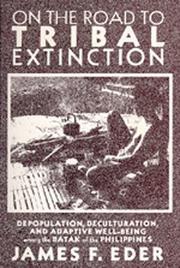
ISBN: 0520912756 0585127867 0520060466 0520078829 9780520912755 9780585127866 Year: 1992 Publisher: Berkeley University of California Press
Abstract | Keywords | Export | Availability | Bookmark
 Loading...
Loading...Choose an application
- Reference Manager
- EndNote
- RefWorks (Direct export to RefWorks)
The cultural and even physical extinction of the world's remaining tribal people is a disturbing phenomenon of our time. In his study of the Batak of the Philippines, James Eder explores the adaptive limits of small human populations facing the ecological changes, social stresses, and cultural disruptions attending incorporation into broader socioeconomic systems.
Batak (Philippine people) --- Acculturation --- Social conditions. --- Population. --- Case studies. --- Culture contact --- Development education --- Batac (Philippine people) --- Batak (Palawan) --- Tinitian (Philippine people) --- Tinitiane (Philippine people) --- Civilization --- Culture --- Ethnology --- Assimilation (Sociology) --- Cultural fusion --- Culture contact (Acculturation)
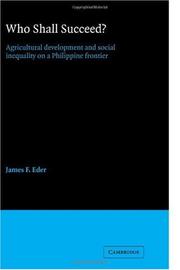
ISBN: 0511735413 0521242185 0521104971 Year: 1982 Publisher: Cambridge : Cambridge University Press,
Abstract | Keywords | Export | Availability | Bookmark
 Loading...
Loading...Choose an application
- Reference Manager
- EndNote
- RefWorks (Direct export to RefWorks)
This book records the emergence and institutionalization of social inequality in San Jose, a pioneer farming village located on Palawan Island in the Philippines. Early chapters reconstruct the historical circumstances surrounding San Jose's settlement and growth under conditions of relative equality of opportunity. The community's development is examined in detail through the experiences of eight migrant farmers, all self-made men some conspicuous successes, others conspicuous failures. Comparing and evaluating the causes of pioneers' successes and failures, Professor Eder stresses that the origins of inequality in San Jose depended less upon the individuals' time of arrival or amounts of starting capital or other such factors than it did upon personal differences. Social inequality, for the most part, had its basis in a level of motivation and in a kind of 'on-the-job competence' that some men and women brought to the frontier and others did not.
Agricultural laborers --- Agriculture --- Farming --- Husbandry --- Industrial arts --- Life sciences --- Food supply --- Land use, Rural --- Agricultural workers --- Farm labor --- Farm laborers --- Farm workers --- Farmhands --- Farmworkers --- Employees --- Economic aspects --- San Jose (Palawan, Philippines) --- Rural conditions. --- Social Sciences --- Anthropology
| Listing 1 - 10 of 15 | << page >> |
Sort by
|

 Search
Search Feedback
Feedback About UniCat
About UniCat  Help
Help News
News